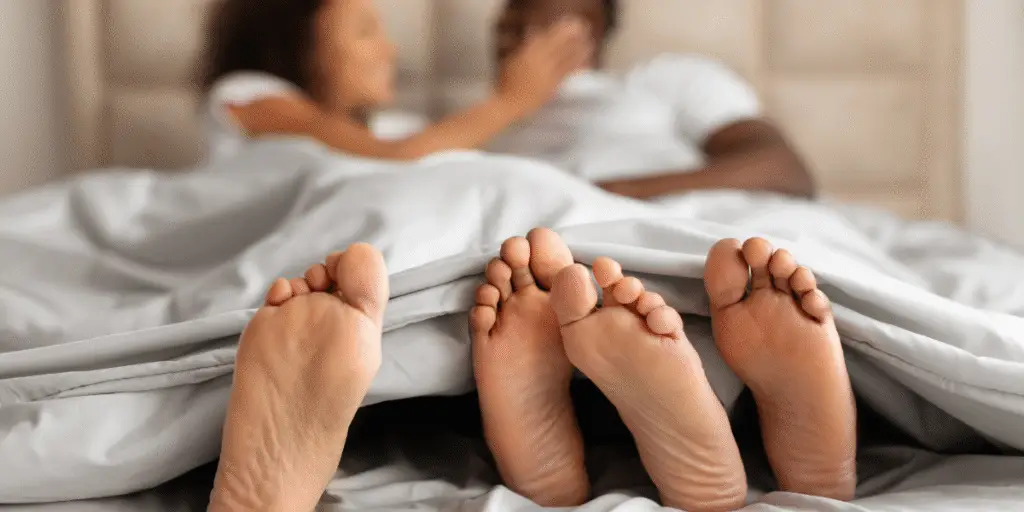Intimacy is deeply human. The desire to connect, to feel seen, to share a closeness with another person, it’s part of what makes life rich.
So when libido fades, gradually or suddenly, it can bring worry, frustration, and even shame. You may ask quietly: “Is something wrong with me? Am I aging out of passion? Could my body not want me anymore?”
At Capital Health & Wellness in Boise and the Treasure Valley, we believe those questions deserve kindness, clarity, and hope.
Low libido is not a personal failure. It often carries a biological story beneath it, one that can be understood, rebalanced, and in many cases healed. One powerful tool in that journey is hormone optimization.
The Many Faces of Low Libido
First, let’s name what we’re talking about. Low libido refers to a diminished interest in sexual activity, or a lack of sexual desire that is distressing or interfering with your relationship or quality of life.
It is different from problems with arousal, lubrication, or orgasm, though those can overlap with libido issues.
Low libido is not rare. It affects people of all ages, genders, and life stages. For women, hormonal shifts (perimenopause, menopause, postpartum) often play a role. For men, testosterone decline, chronic illnesses, or medications can be factors.
But before diving into hormones, it helps to see the full picture. Libido is multi‑factorial. Here are common contributing factors:
- Hormonal changes or imbalances
- Chronic stress, anxiety, or depression
- Fatigue, poor sleep or insomnia
- Relationship strain, communication issues, emotional distance
- Medical conditions (thyroid disease, diabetes, obesity, cardiovascular disease)
- Medications (SSRIs, blood pressure drugs, certain hormonal contraceptives)
- Lifestyle factors (poor diet, excessive alcohol, smoking, lack of exercise)
- Psychological trauma, body image issues, low self-esteem
If one or more of these resonate with you, you are not alone, and you are not stuck.

Why Hormones Matter
Hormones are chemical messengers that influence nearly every tissue in our body. They affect mood, energy, metabolism, sleep, cognition and sexual desire.
When hormones drift out of balance, libido often is one of the casualties.
Here are a few key hormone players in libido, and how they relate:
- Testosterone
Often thought of as a “male” hormone, testosterone plays a vital role in both men and women’s sexual desire. In men, low testosterone is a classic contributor to reduced libido.
In women, the role is more complicated: some studies suggest that testosterone therapy may help women with low desire, especially in peri- or postmenopause, but evidence is mixed and regulatory approvals are lacking.
- Estrogen / Estradiol
Estrogen helps regulate vaginal lubrication, tissue health, and receptivity. In women going through menopause, falling estrogen levels often coincide with lower libido, vaginal dryness, and discomfort during sex. Hormone therapy (HT) may help.
- Progesterone
Though less directly tied to libido, progesterone’s balance with estrogen matters. Too much (or misbalanced) progesterone can dampen sexual desire.
- Sex Hormone–Binding Globulin (SHBG)
SHBG binds up “free” sex hormones, which means that even if total hormone levels look “normal,” the bioavailable (active) fraction might be low.
- Cortisol / Stress Hormones
Chronic stress and elevated cortisol can blunt libido by interfering with the sex hormone axis. High cortisol can reduce testosterone or estrogen signaling.
- Thyroid hormones, DHEA, adrenal hormones
These also play supporting roles. Thyroid dysfunction is a known culprit in decreased libido, fatigue, and low mood.
Hormone Optimization: What It Means at Capital Health & Wellness
1. Deep Listening & Assessment
Your story matters.
We begin with a full exploration:
- Your sexual history, expectations, and patterns
- Other symptoms (mood, energy, sleep, weight, cognition)
- Medical history and medications
- Relationship history, stressors, mental health
- Lifestyle habits (nutrition, sleep, movement)
We often combine questionnaires, physical exam, and partner dialogue (if desired) to get the full context.
2. Comprehensive Testing
Next, we run a targeted panel of lab tests, not just “testosterone total,” but a more nuanced hormone map.
This may include:
- Total and free testosterone
- Estradiol, estrogen metabolites
- Progesterone
- SHBG
- Cortisol / DHEA
- Thyroid panel
- Other relevant labs (lipids, blood sugar, vitamin D, inflammation markers)
By understanding where your hormones diverge from optimal ranges, we can design a precise intervention.
3. Tailored Hormone Therapy (Bioidentical when appropriate)
We use bioidentical hormone therapy when it offers the best risk/benefit balance for you. (Bioidentical means the molecular structure of the hormones is the same as what your body produces naturally.)
Depending on your needs, therapy may include:
- Testosterone (in men, delivered via gel, injections, pellets, etc.)
- Estrogen (for women experiencing menopausal drop)
- Progesterone (to balance estrogen and support mood/sleep)
- Adjusting ratios and delivery methods to optimize free hormone levels
We closely monitor and adjust therapy over time, based on symptoms and labs, always prioritizing safety.
4. Lifestyle, Mindset & Communication Work
Hormones are not magic.
Their impact is magnified when paired with:
- Balanced nutrition (supporting hormone health)
- Quality sleep
- Stress reduction (meditation, breathwork, therapy)
- Regular movement
- Emotional intimacy and communication with your partner
- Counseling or sex therapy when emotional, relational, or psychological barriers exist
At Capital Health, we believe the full path to healing runs through body, mind, and heart.
5. Ongoing Monitoring & Adjustment
Hormone optimization is dynamic, not static. We schedule follow‑ups, recheck labs, fine‑tune doses, and respond to life changes (stress, travel, medical events).
What Improvement Typically Feels Like — And When It Happens
Every person is unique, but here’s a rough map of what many clients report:
- Within weeks to a few months, you may notice subtle shifts: more spontaneous thoughts of intimacy, increased sensitivity, better energy and mood.
- By 3–6 months, many feel consistent improvement in desire, comfort, and connection.
- Over a year or more, libido can settle into a new, more vibrant baseline.
It’s important to stay patient. Hormonal systems take time to recalibrate.
And if libido doesn’t fully restore, we explore other strategies (therapy, counseling, sexual medicine referrals), never judging the outcome.
Safety, Risks & Myths
Because talking about hormones and sex feels vulnerable, it’s vital to be transparent about risks, myths, and limitations.
- Not every low libido is hormonal
Sometimes hormones are a contributing factor, not the only one. Emotional, relational, neurological, or psychological causes may predominate.
- Testosterone for women is controversial
While some studies show benefit for women with hypoactive sexual desire disorder (HSDD), the long‑term safety data are limited.
- Bioidentical does not mean “totally risk‑free”
Every hormonal therapy carries potential side effects. We weigh risks and benefits carefully, monitor labs, and follow evidence.
- Hormones are not an immediate “sexual pill”
These treatments support underlying physiology, not produce instant sexual miracles.
- Regulation & oversight matter
We use trusted compounding pharmacies or commercial products, and we adhere to best practices in hormone prescribing.

Why Capital Health & Wellness Is a Good Partner
- We serve Boise and the Treasure Valley with local roots and a commitment to personalized care.
- Our team is trained in hormone medicine and integrative wellness, we don’t just “dose testosterone,” we care for the whole person.
- We partner with you over time, not just one appointment.
- We believe in transparency, safety, and integrity.
FAQs
Q: How do I know if my low libido is “normal” or something to treat?
A: There is no universal “normal” for sexual desire. What matters is your baseline, what’s changed, and whether it bothers you or your relationship. If low desire is causing distress, it’s worth exploring.
Q: Do I need to stop my current medications before starting hormone therapy?
A: Not necessarily. But we will review all your medications (SSRIs, blood pressure meds, etc.) to see if they are contributing and whether alternatives or dose changes are possible.
Q: Is hormone optimization safe long term?
A: Many hormone therapies are safe when monitored properly, but ongoing research is essential. We keep close tabs on labs, symptoms, and side effects and adjust proactively.
Q: Will hormone therapy fix all intimacy or relationship issues?
A: No. Hormones can help restore desire and physiology, but emotional, relational, psychological, and communication dynamics often need their own care. We may refer to sex therapists or couples therapists as needed.
Q: How soon will I see results?
A: Some people notice shifts in weeks. More often, 3 to 6 months is when consistent improvements emerge. Full recalibration may take longer.
Q: Does hormone therapy affect fertility?
A: It depends on your regimen. Some hormone treatments may suppress ovulation or sperm production. If fertility or contraception matters, we’ll design a plan with that in mind.
Q: Can men also benefit from hormone optimization for libido?
A: Absolutely. In men, low testosterone is a common cause of decreased libido. Optimizing hormone regimes, adjusting dosages, and improving overall health often lead to restored interest and performance.
Q: What if hormone therapy doesn’t restore my libido fully?
A: That’s OK. We’ll explore complementary approaches such as sexual medicine referrals, counseling, psychosexual therapy, relationship work, somatic therapies, or adjunctive treatments. You are never judged or left alone.
Final Word
If the spark has dimmed, you are not broken, you are misunderstood. In many cases, low libido is a signal, not a verdict. It’s your body’s way of asking for balance, healing, and care.
At Capital Health & Wellness, our invitation to you is simple: let us help you understand your body again. Let us help you reclaim your passion and connection.
Let us walk with you, not as judges, not as quick-fix merchants, but as allies, rooting for your healing.
If you feel drawn to explore this path, you may book an appointment here..
